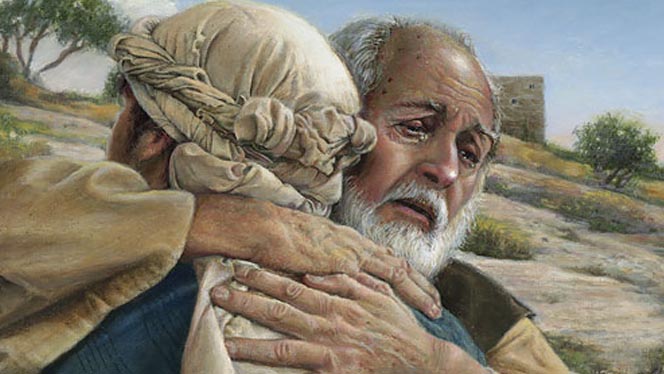Today’s readings provide a great way to take spiritual inventory of how we our living our lives when faced with adversity and difficulty in matters of faith. Today’s First Reading shows the blessed aftermath of the persecution that began with Stephen’s martyrdom and ended with Saul’s conversion. The Church was at peace, growing, and strengthened by the Holy Spirit. Peter was performing miracles in Our Lord’s name just like Jesus did. It was a Church full of dynamism and enthusiasm that had weathered difficulties and remained strong in faith.
In contrast, we have today’s Gospel, years earlier. The teaching on the Eucharist was too much, and many disciples abandoned the life Jesus had taught them. Their faith when challenged was anemic, and Our Lord already knew who was welcoming grace into their hearts and who wasn’t. Those who did persevere in faith and in living as Christ taught were blessed in abundance. We can imagine what was going on in Peter’s heart in the First Reading today when he was kneeling before the corpse of Tabitha and praying for the Lord to restore her to life. Who knows whether they had called him just to pray for their deceased friend or for a miracle, but a miracle is what they got.
Our Lord continues to work miracles through his Church. Just as Our Lord performed wonders, and Peter after him, he has entrusted his Church to continue teaching and breathing new life into believers. Today’s individualism often tempts us to try and work out spiritual matters on our own, a la carte, on our terms, and without anyone else’s “interference,” but as the First Reading reminds us today, the Church has been established so that believers can help believers. Let’s examine our life today and see whether we’ve drifted from what Our Lord has taught or doubted that his teaching now continues through his Church. Many times this results from a teaching difficult to accept. Like Peter in today’s Gospel, let’s believe first, in order to then be convinced through grace that Jesus is the Holy One of God.
Readings: Acts 9:31–42; Psalm 116:12–17; John 6:60–69. See also 21st Sunday in Ordinary Time, Cycle B.


